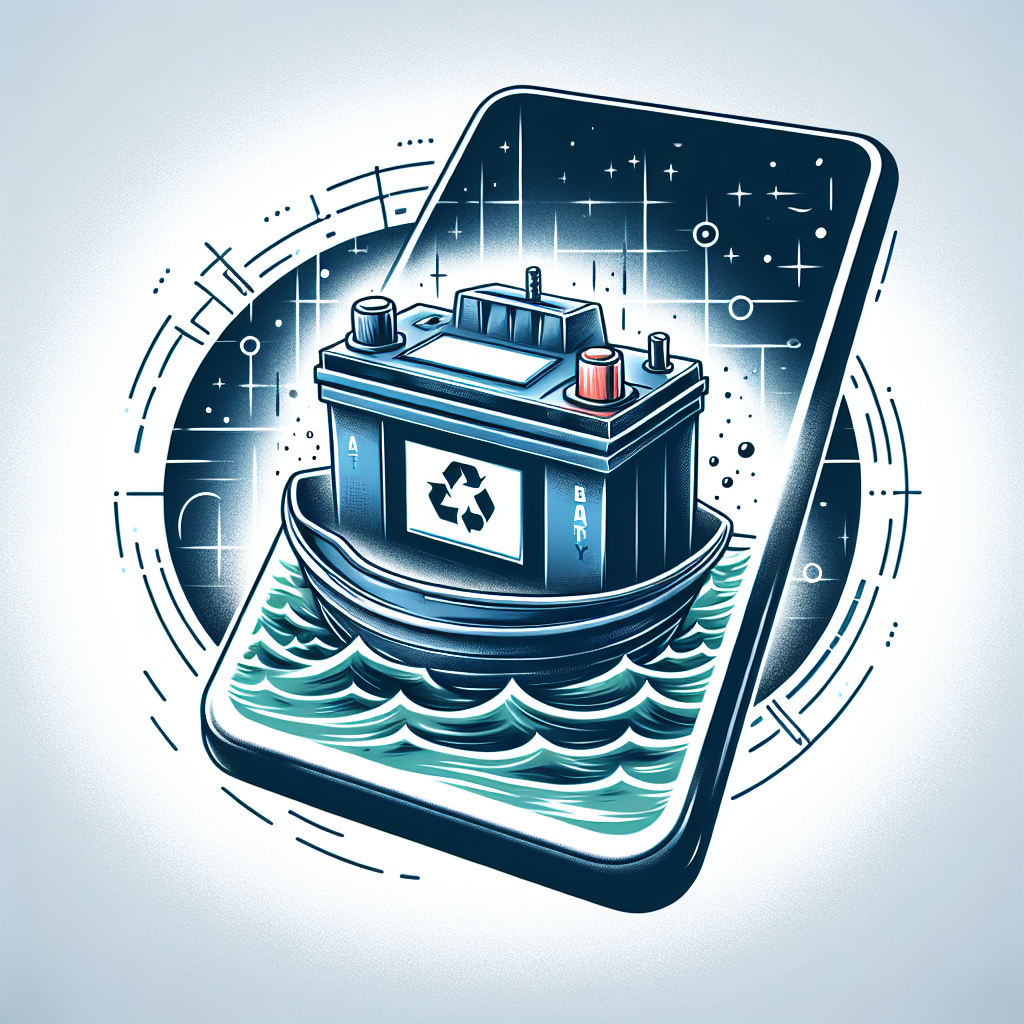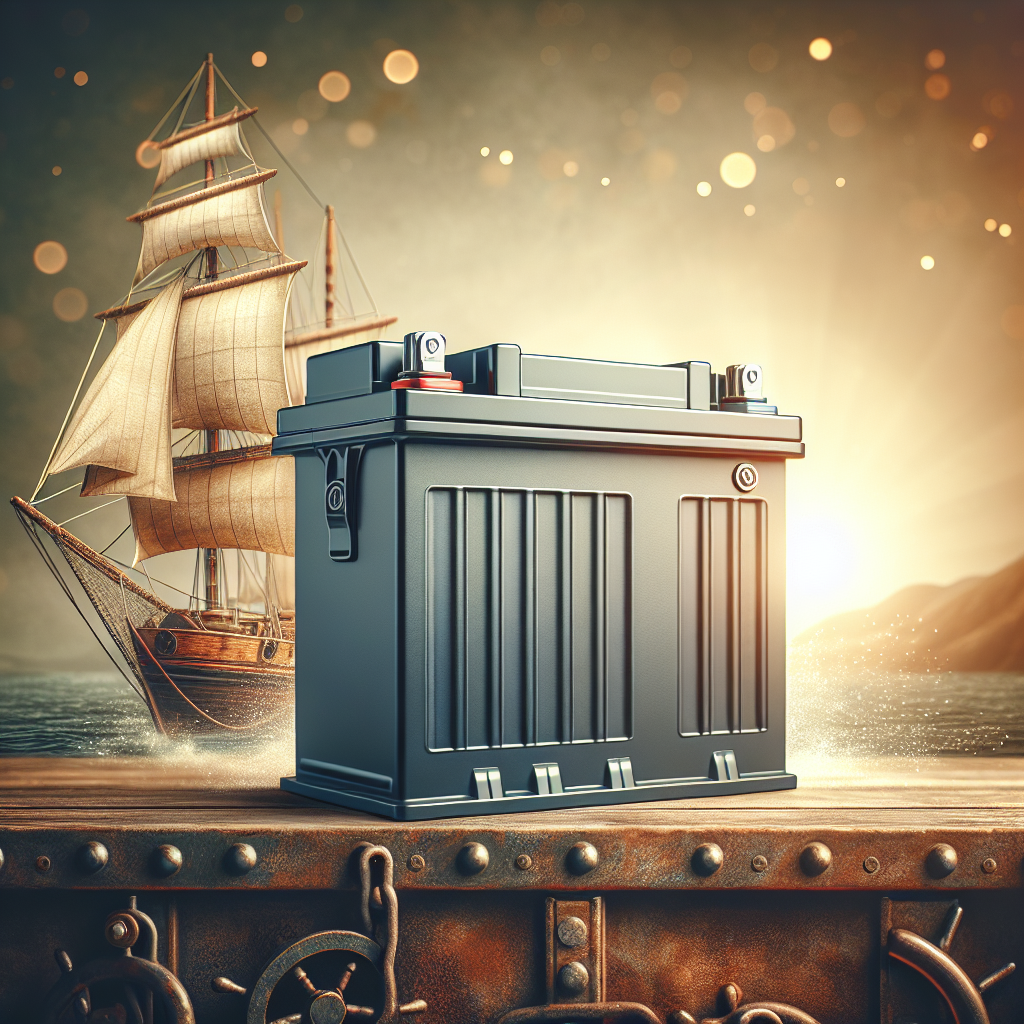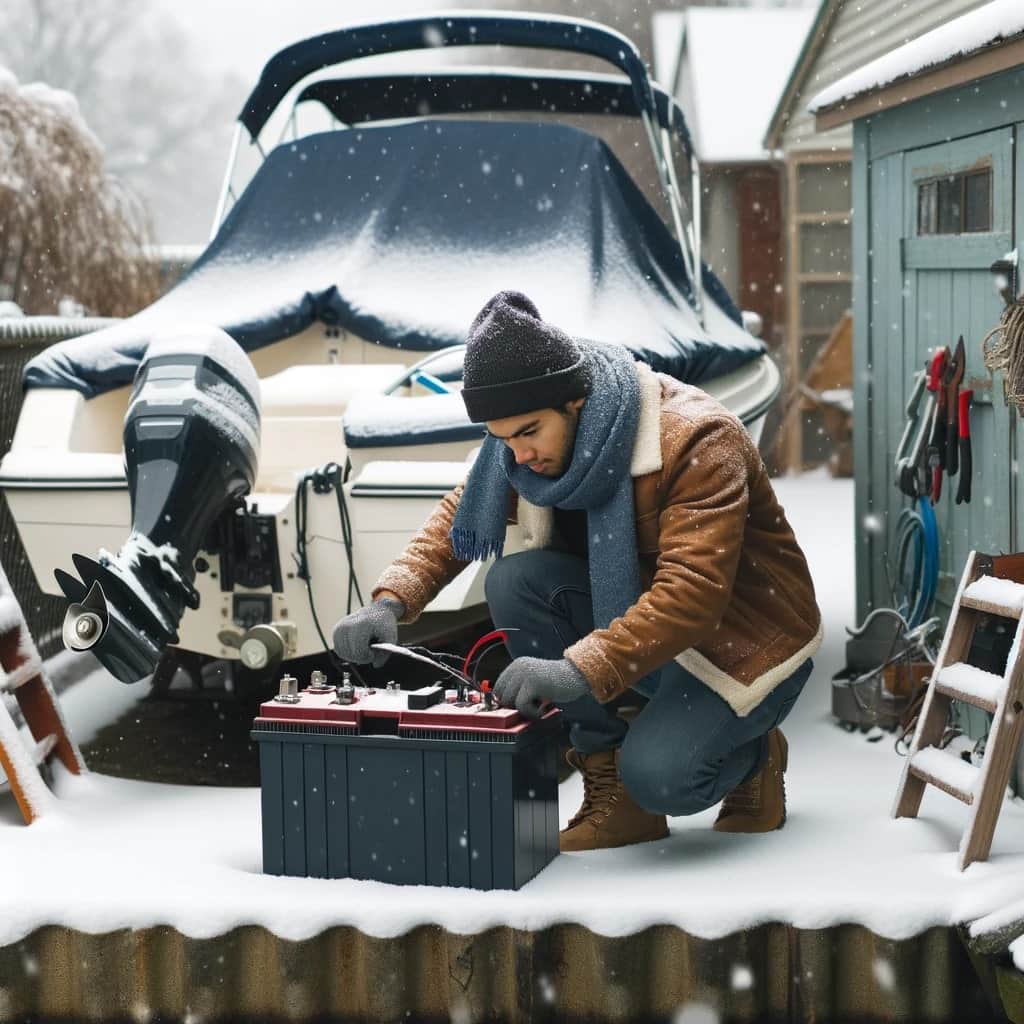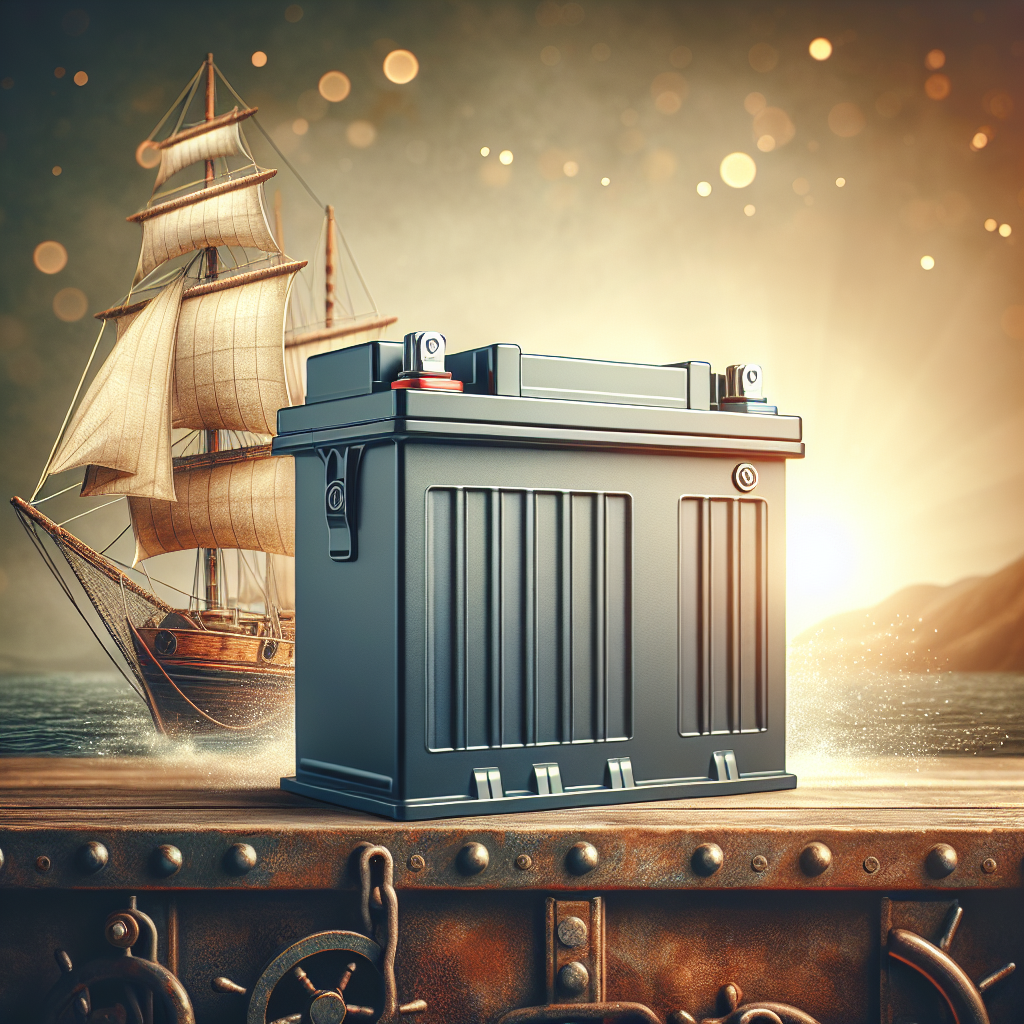Best Battery For Boat Guide
So you’ve got a boat and you require a reliable battery that won’t leave you stranded in the middle of the water. Look no further! In this article, we’ve scoured the market and found the best battery for boats that will keep you afloat.
Whether you’re a seasoned captain or a beginner, having a dependable battery is essential for powering your boat’s engine, electronics, and lights. With our top pick, you can trust that your boat will have the juice it needs to keep you cruising.
Say goodbye to worrying about your battery dying and hello to worry-free boating with the best battery for your boat.

Different Types of Boat Batteries
When it comes to choosing a battery for your boat, there are several options available. Each type of battery has its advantages and disadvantages, so it’s important to understand the differences before making a decision.
The four most common types of boat batteries are lead-acid batteries, gel cell batteries, absorbed glass mat (AGM) batteries, and lithium-ion batteries. Let’s take a closer look at each type.
Lead-acid batteries
Lead-acid batteries are the most traditional and widely used type of boat battery. They are known for their reliability and affordability. These batteries consist of a lead-based solution and an acid electrolyte.
One of the main advantages of lead-acid batteries is their ability to deliver a high amount of cranking power, which is essential for starting the boat’s engine. However, they require regular maintenance such as adding distilled water to the cells and checking the acid levels.
Gel Cell batteries
Gel Cell batteries are a type of sealed lead-acid battery. They are constructed with a gel electrolyte instead of a liquid electrolyte, which makes them spill-proof and resistant to vibration. Gel Cell batteries are known for their deep-cycle capabilities, meaning they can provide a steady amount of power over a long period of time.
This makes them great for powering onboard accessories such as trolling motors and fish finders. However, they tend to be more expensive than traditional lead-acid batteries.
Absorbed Glass Mat (AGM) batteries
AGM batteries are another type of sealed lead-acid battery. They use a fiberglass mat to absorb the electrolyte, which makes them spill-proof and maintenance-free. AGM batteries have a high cranking power, making them suitable for starting boat engines.
They also have a longer lifespan compared to traditional lead-acid batteries. However, they can be more expensive than other types of batteries.
Lithium-ion batteries
Lithium-ion batteries are the newest type of boat battery on the market. They are known for their high energy density and lightweight design. Lithium-ion batteries offer a longer lifespan, faster charging times, and can hold their charge for a longer period of time compared to other battery types.
They are also more compact and require less maintenance. However, they tend to be the most expensive option.
Factors to Consider when Buying Best Boat Battery
When it comes to choosing the best boat battery for your needs, there are several factors to consider. Here are the most important ones:
Battery Type
Consider the type of battery that best suits your boating needs. Are you looking for a battery that provides high-cranking power for starting your boat engine, or do you need a battery with deep-cycle capabilities for running onboard accessories? Understanding your specific requirements will help you choose the right battery type.
Capacity
Battery capacity refers to the amount of charge a battery can hold. It is typically measured in ampere-hours (Ah). Consider the power requirements of your boat and the accessories you plan to use. Choose a battery with sufficient capacity to ensure you have enough power for your entire boating trip without running out.
Size and Weight
The size and weight of the battery are important factors to consider, especially if you have limited space on your boat. Make sure you choose a battery that fits in your boat’s battery compartment and is not too heavy for your boat’s weight limit.
Additionally, consider whether you will need to transport the battery frequently, as a lighter battery might be more convenient in such cases.
Price and Brand
Consider your budget when choosing a boat battery. Prices can vary depending on the type, capacity, and brand. It’s important to strike a balance between quality and affordability.
Research different brands and read customer reviews to ensure that you choose a reputable brand known for producing reliable and durable batteries.
Popular Boat Battery Brands
When it comes to boat batteries, several popular brands are known for their quality and performance. Here are some of the top boat battery brands:
Optima
Optima is a well-known brand in the marine industry, offering a range of high-performance batteries. They are known for their innovative SpiralCell design, which provides a strong and clean power source. Optima batteries are highly durable, spill-proof, and can withstand extreme vibrations.
VMAX
VMAX is another reputable brand that specializes in deep-cycle batteries. Their batteries are designed to provide long-lasting power for running accessories such as trolling motors and fish finders. VMAX batteries are known for their exceptional performance, reliability, and longevity.
Odyssey
Odyssey batteries are known for their high-quality construction and impressive starting power. They are designed to withstand deep discharges and offer a longer service life compared to standard lead-acid batteries. Odyssey batteries are also vibration-resistant and can handle harsh marine conditions.
Minn Kota
Minn Kota is a trusted brand for boating accessories, including boat batteries. They offer a range of lead-acid and AGM batteries that provide reliable power for boating needs. Minn Kota batteries are known for their durability and performance, ensuring that your boat’s power needs are met.
Best Lead-acid Boat Battery
Lead-acid batteries have been a popular choice for boaters for many years. They offer reliability and affordability. Among the lead-acid battery options, one of the best choices is the [insert best lead-acid boat battery model. This battery offers several features that make it stand out from the rest.
Features
- High cranking power for reliable engine starts even in cold weather conditions.
- Deep-cycle capabilities for running onboard accessories.
- Maintenance-free design for convenience.
- Long service life for extended use.
Advantages and Disadvantages
One of the main advantages of this lead-acid boat battery is its reliability. It provides a high-cranking power, ensuring that your boat engine starts smoothly every time. Additionally, it has deep-cycle capabilities, making it suitable for running accessories such as trolling motors.
However, the battery’s main disadvantage is its weight. Lead-acid batteries tend to be heavier compared to other battery types, which may be a concern if you have limited weight capacity on your boat. Additionally, lead-acid batteries require regular maintenance, such as adding distilled water to the cells.
Customer Reviews
Customers who have purchased this lead-acid boat battery have been pleased with its performance and reliability. They have noted that it provides consistent power for starting their boat engines and running onboard accessories. The battery’s long service life has also been appreciated by customers, as it reduces the need for frequent battery replacements.
Overall, this lead-acid boat battery has received positive reviews for its reliability, deep-cycle capabilities, and long service life.

Best Gel Cell Boat Battery
Gel Cell batteries are a popular choice for boaters who require deep-cycle capabilities. Among the gel cell battery options, one of the best choices is the [insert best gel cell boat battery model]. This battery offers several features that make it a top contender in its category.
Features
- Deep-cycle capabilities for running accessories over an extended period of time.
- Spill-proof and vibration-resistant design for durability.
- Maintenance-free operation for convenience.
- High-quality construction for longevity.
Advantages and Disadvantages
One of the main advantages of this gel cell boat battery is its deep-cycle capabilities. It can provide a steady amount of power over a long period of time, making it ideal for running accessories such as trolling motors and fish finders. Additionally, its spill-proof and vibration-resistant design ensures durability in harsh marine conditions.
However, one disadvantage of gel cell batteries is their higher price compared to traditional lead-acid batteries. They tend to be more expensive because of their advanced construction and deep-cycle capabilities. It’s important to consider your budget when choosing a gel cell boat battery.
Customer Reviews
Customers who have purchased this gel cell boat battery have praised its deep-cycle capabilities and durability. They have noted that it provides consistent power for running onboard accessories without compromising on performance. The battery’s maintenance-free operation has also been appreciated by customers, as it saves time and effort.
Overall, this gel cell boat battery has received positive reviews for its deep-cycle capabilities, durability, and maintenance-free operation.
Best Absorbed Glass Mat (AGM) Boat Battery
AGM batteries are a popular choice for boaters who want a maintenance-free battery with high-performance capabilities. Among the AGM battery options, one of the best choices is the [insert best AGM boat battery model]. This battery offers several features that make it an excellent choice for boaters.
Features
- Maintenance-free design for convenience.
- High cranking power for reliable engine starts.
- Deep-cycle capabilities for running onboard accessories.
- Spill-proof and vibration-resistant construction for durability.
Advantages and Disadvantages
One of the main advantages of this AGM boat battery is its maintenance-free design. It does not require adding distilled water to the cells or checking acid levels, making it hassle-free to use. Additionally, it offers high-cranking power for reliable engine starts and deep-cycle capabilities for running accessories.
However, one disadvantage of AGM batteries is their higher price compared to traditional lead-acid batteries. They tend to be more expensive due to their advanced construction and maintenance-free operation. It’s important to consider your budget when choosing an AGM boat battery.
Customer Reviews
Customers who have purchased this AGM boat battery have been highly satisfied with its performance and convenience. They have noted that it provides reliable power for starting their boat engines and running onboard accessories. The battery’s maintenance-free design has been praised by customers, as it saves time and simplifies maintenance routines.
Overall, this AGM boat battery has received positive reviews for its maintenance-free design, high-cranking power, and deep-cycle capabilities.
Best Lithium-ion Boat Battery
Lithium-ion batteries are the latest innovation in boat battery technology. They offer high energy density, lightweight design, and long-lasting performance. Among the lithium-ion battery options, one of the best choices is the [insert best lithium-ion boat battery model]. This battery offers several features that make it a standout option for boaters.
Features
- High energy density for longer run time.
- Lightweight design for easy handling and installation.
- Fast charging times for minimal downtime.
- Long service life for extended use.
Advantages and Disadvantages
One of the main advantages of this lithium-ion boat battery is its high energy density. It can hold more charge compared to other battery types, allowing for longer run times without the need for recharging. Additionally, its lightweight design makes it easy to handle and install, which is especially beneficial for smaller boats.
However, the main disadvantage of lithium-ion batteries is their higher price compared to other battery types. They tend to be the most expensive option due to their advanced technology and superior performance. It’s important to consider your budget when choosing a lithium-ion boat battery.
Customer Reviews
Customers who have purchased this lithium-ion boat battery have been impressed with its performance and durability. They have noted that it provides consistent power for extended boating trips and requires minimal charging time.
The battery’s lightweight design has also been appreciated by customers, as it simplifies installation and reduces overall weight on the boat.
Overall, this lithium-ion boat battery has received positive reviews for its high energy density, lightweight design, and long service life.
Maintaining your Boat Battery
Proper maintenance is essential for ensuring the longevity and performance of your boat battery. Here are some important maintenance tips to follow:
Proper storage
When your boat is not in use, it’s important to store the battery properly. Keep it in a cool and dry location to prevent excessive heat or moisture from damaging the battery. If possible, remove the battery from the boat and store it in a well-ventilated area.
Regular Cleaning
Regularly clean the battery terminals and connections to prevent corrosion. Use a mixture of baking soda and water to gently scrub away any build-up. Rinse with clean water and dry thoroughly before reattaching the connections.
Regular Charging
Keep your boat battery charged at all times, especially during periods of inactivity. Use a battery charger specifically designed for your battery type to avoid overcharging. Regularly check the battery voltage to ensure it remains within the recommended range.

Boat Battery Safety
Proper handling and installation of your boat battery are crucial for safety. Here are some important safety tips to follow:
Proper Installation
Follow the manufacturer’s instructions for properly installing the battery in your boat. Ensure that the battery is securely fastened in a well-ventilated battery compartment. Avoid placing metal objects near the battery terminals to prevent accidental short circuits.
Inspecting for Damage
Regularly inspect your boat battery for any signs of damage or wear. Check for leaks, cracks, or bulges in the battery casing. If you notice any damage, replace the battery immediately to avoid potential hazards.
Avoid Overcharging
Overcharging can cause the battery to overheat and potentially explode. Use a battery charger with an automatic shut-off feature to prevent overcharging. Additionally, avoid leaving the battery charging overnight or for extended periods of time.
Inverter or Generator: Which is more Suitable as a Backup for your Boat Battery?
Having a reliable backup power source is essential for boaters, especially during extended trips or emergencies. There are two main options to consider: an inverter or a generator. Let’s explore the differences and pros and cons of each option.
Differences between Inverters and Generators
- Inverters convert DC power from the battery into AC power, which can be used to power electrical devices. Generators, on the other hand, produce AC power directly from fuel, such as gasoline or propane.
- Inverters are typically smaller, lighter, and quieter compared to generators. They can be easily installed on a boat and provide power without the need for fuel. Generators, on the other hand, require fuel and produce more noise and emissions.
- Inverters are best suited for powering sensitive electronics, such as laptops and smartphones. They provide clean and stable power, free from voltage fluctuations. Generators, on the other hand, can power a wider range of devices but may produce less stable power, which can potentially damage sensitive electronics.
Pros and Cons of using Inverter
- Pros: Inverters are compact and lightweight, making them easy to install and transport. They provide clean and stable power for sensitive devices, ensuring they operate without interruptions. Inverters are also fuel-free and produce minimal noise and emissions, making them environmentally friendly.
- Cons: Inverters have a limited power output compared to generators. They may not be suitable for powering high-draw devices, such as air conditioners or refrigerators. Additionally, inverters rely on the boat’s battery as their power source, so prolonged use may deplete the battery.
Pros and Cons of Using Generator
- Pros: Generators offer a higher power output compared to inverters, making them suitable for powering a wider range of devices. They can handle high-draw devices, such as air conditioners and refrigerators. Generators also provide a consistent power source without relying on the boat’s battery.
- Cons: Generators are larger, heavier, and noisier compared to inverters. They require fuel and produce emissions, which can be a concern for environmentally conscious boaters. Additionally, generators may produce less stable power, which can potentially damage sensitive electronics.
Ultimately, the choice between an inverter and a generator as a backup for your boat battery depends on your specific needs and preferences. If you prioritize portability, quiet operation, and clean power for sensitive electronics, an inverter may be the better option.
However, if you require a higher power output and a versatile power source, a generator may be more suitable.
In conclusion, choosing the best boat battery involves considering factors such as battery type, capacity, size and weight, and price and brand. Popular boat battery brands, including Optima, VMAX, Odyssey, and Minn Kota, offer a range of options to meet different boating needs.
Understanding the features, advantages, and customer reviews of each battery type, including lead-acid, gel cell, AGM, and lithium-ion batteries, helps in making an informed decision. Proper maintenance and adherence to safety guidelines ensure the longevity and reliable performance of your boat battery.
When it comes to backup power, considering the differences and pros and cons of inverters and generators helps determine the most suitable choice. With the right boat battery, you can enjoy uninterrupted power and peace of mind during your boating adventures.








